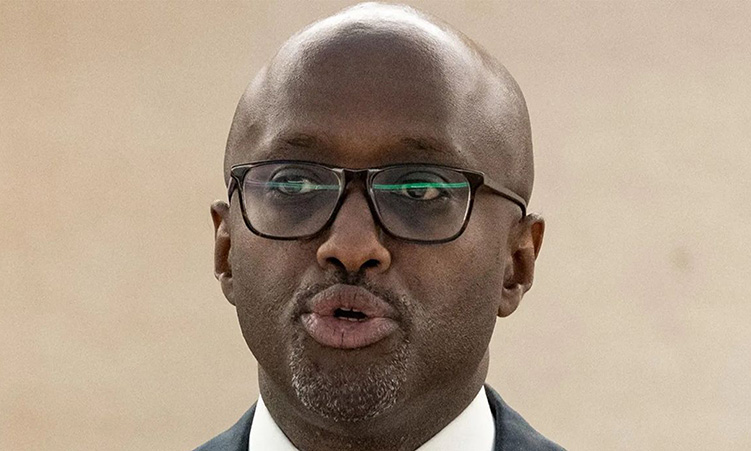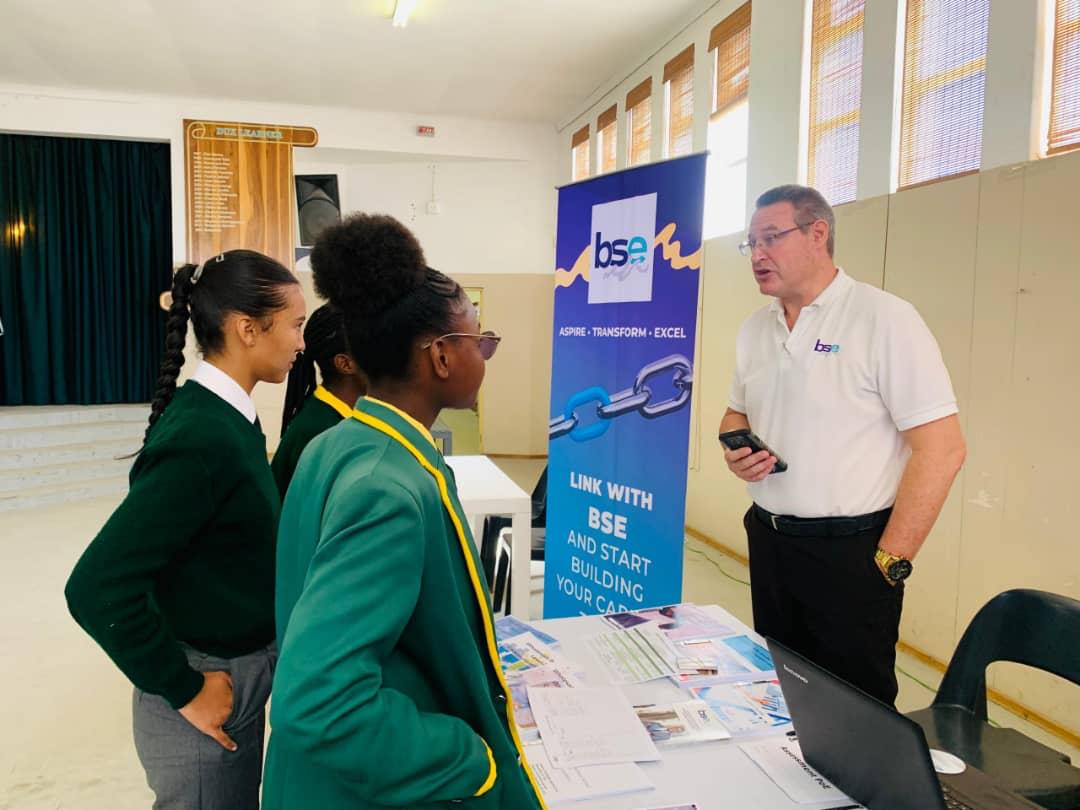CONCERNING the controversy about the pricing of electricity I would like to air some views on the need for a board to control our electricity tariffs and the reason for local authorities inflating their electricity tariffs.
The CEO of the ECB in his response (The Namibian of December 1, 2006) to a letter of Mr Koepp inter alia states that “The ECB has been established as a regulator in the electricity industry for the main reasons – (1) that this industry is a monopoly and that monopolies can abuse their position in the market; and (2) to ensure an affordable and sustainable service through tariff regulation.” Why is everybody so obsessed with electricity? What about all the other “monopolistic” services rendered by local authorities like water, sewerage and the open space and street cleaning services – why do we need no boards to control the tariffs of these services? The CEO also mentions that electricity pricing has been subject to Government control since 1922.This, incidentally, is not entirely true since the three Grade I local authorities, Windhoek, Swakopmund and Walvis Bay only needed the approval of the their City/Town Councils to gazette their tariffs, but why can officials of the Ministry of Local Government and Housing not keep on controlling all tariffs of the other local authorities and, for that matter, of Windhoek, Swakopmund and Walvis Bay as well? Or are these officials only able to understand the “sound and accepted methodology” to control all local authority service tariffs except for electricity? Local authorities furthermore normally increase their service tariffs only once a year, which means that this important controlling needs only to be done once a year! The CEO also alleges that “the ECB has since 2000 saved the consumers hundreds of millions through approval of reasonable tariffs and not the higher tariffs applied for”.This, firstly, is the worst exaggeration I have come across in a long time but even so, the controlling by Government could exactly have achieved the same and, most importantly, could have really saved electricity consumers millions in ECB levies (N$4,7 budgeted for Windhoek alone for the 2006/2007 financial year).The acquisition and distribution of electricity throughout Namibia in the past was done in an exemplary and cost-effective way by NamPower.Do we need the ECB to perform this function (at great cost to the consumer) now? Concerning the comments of the CEO of the ECB that “electricity has always been a cash cow”, we always have to look at the total monthly municipal bill.Most local authorities have a financial policy of rendering their indispensable services like water, sewerage and refuse removal as close to cost as possible.An amount needed to finance certain non-remunerative services, however, is added to the actual cost of the electricity service when determining its tariffs.This added amount, of course, should have been budgeted under assessment rates but is rather added to electricity because of the better credit control leverage achieved by doing so.Since electricity is the only service one can do without if need be, its suspension therefore is the most “humane” credit control measure and also the most cost-effective to be employed in case of non-payment.The only way to collect overdue assessment rates is to take cumbersome and expensive legal action for arrears as little as a few hundred dollars.To make the ECB and all economic societies happy it would be the easiest thing in the world for the City of Windhoek (for example) to also render its electricity service at cost.In order to compensate for the loss of the budgeted electricity surplus of 28% (N$99,6 million) for the 2006/2007 financial year, the assessment rate tariffs, however, have to be increased by about 98%.Since about 90% of all electricity consumers directly or indirectly (in case of lessees) have to pay assessment rates, what will we have achieved by lowering the electricity tariffs? Alternatively the standard of services have to be lowered, all services have to break even (imagine burial and cremation fees as well swimming pool entrance fees being increased by 1000% or bus fares being increased by 100%) or the services have to be totally discontinued.I think very few ratepayers have an idea of what the City of Windhoek collects and spends on its services.Unfortunately the budget of the City of Windhoek (which is a public document available to all ratepayers of the City) is compiled in an antiquated and awkward format which makes it quite difficult to study.Klaus Hennies WindhoekWhy is everybody so obsessed with electricity? What about all the other “monopolistic” services rendered by local authorities like water, sewerage and the open space and street cleaning services – why do we need no boards to control the tariffs of these services? The CEO also mentions that electricity pricing has been subject to Government control since 1922.This, incidentally, is not entirely true since the three Grade I local authorities, Windhoek, Swakopmund and Walvis Bay only needed the approval of the their City/Town Councils to gazette their tariffs, but why can officials of the Ministry of Local Government and Housing not keep on controlling all tariffs of the other local authorities and, for that matter, of Windhoek, Swakopmund and Walvis Bay as well? Or are these officials only able to understand the “sound and accepted methodology” to control all local authority service tariffs except for electricity? Local authorities furthermore normally increase their service tariffs only once a year, which means that this important controlling needs only to be done once a year! The CEO also alleges that “the ECB has since 2000 saved the consumers hundreds of millions through approval of reasonable tariffs and not the higher tariffs applied for”.This, firstly, is the worst exaggeration I have come across in a long time but even so, the controlling by Government could exactly have achieved the same and, most importantly, could have really saved electricity consumers millions in ECB levies (N$4,7 budgeted for Windhoek alone for the 2006/2007 financial year).The acquisition and distribution of electricity throughout Namibia in the past was done in an exemplary and cost-effective way by NamPower.Do we need the ECB to perform this function (at great cost to the consumer) now? Concerning the comments of the CEO of the ECB that “electricity has always been a cash cow”, we always have to look at the total monthly municipal bill.Most local authorities have a financial policy of rendering their indispensable services like water, sewerage and refuse removal as close to cost as possible.An amount needed to finance certain non-remunerative services, however, is added to the actual cost of the electricity service when determining its tariffs.This added amount, of course, should have been budgeted under assessment rates but is rather added to electricity because of the better credit control leverage achieved by doing so.Since electricity is the only service one can do without if need be, its suspension therefore is the most “humane” credit control measure and also the most cost-effective to be employed in case of non-payment.The only way to collect overdue assessment rates is to take cumbersome and expensive legal action for arrears as little as a few hundred dollars.To make the ECB and all economic societies happy it would be the easiest thing in the world for the City of Windhoek (for example) to also render its electricity service at cost.In order to compensate for the loss of the budgeted electricity surplus of 28% (N$99,6 million) for the 2006/2007 financial year, the assessment rate tariffs, however, have to be increased by about 98%.Since about 90% of all electricity consumers directly or indirectly (in case of lessees) have to pay assessment rates, what will we have achieved by lowering the electricity tariffs? Alternatively the standard of services have to be lowered, all services have to break even (imagine burial and cremation fees as well swimming pool entrance fees being increased by 1000% or bus fares being increased by 100%) or the services have to be totally discontinued.I think very few ratepayers have an idea of what the City of Windhoek collects and spends on its services.Unfortunately the budget of the City of Windhoek (which is a public document available to all ratepayers of the City) is compiled in an antiquated and awkward format which makes it quite difficult to study.Klaus Hennies Windhoek
Stay informed with The Namibian – your source for credible journalism. Get in-depth reporting and opinions for
only N$85 a month. Invest in journalism, invest in democracy –
Subscribe Now!










